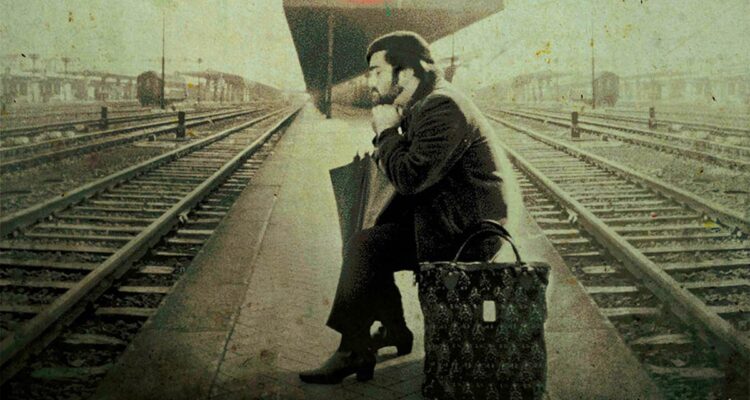Resembling more of a personal tribute than exhaustive biography, Pietro Marcello‘s Lucio Dalla documentary, “For Lucio,” takes its title as an invitation. A rambling eulogy that is just as often confusing as it is profound, Marcello’s wisp of a film (running less than 80 minutes) may be missing key context for those not already versed in the life and music of the politically-oriented Italian singer-songwriter. Still, for those with some awareness of Dalla — or even those willing to do some research on their own — Marcello’s tribute offers just enough nostalgia to seek out his music.
Revolving on the personal recollections of two men who were close to Dalla — his manager Umberto Righi (called Tobia) and his childhood friend Stefano Bonaga — as they sit around for an extended lunch to discuss Dalla’s transition from obscure jazz musician to renowned pop singer in the ’70s and ’80s. While Marcello, through Tobia, gives some insight into Dalla’s early years, as the manager reflects on Dalla’s initial tours through nightclubs and television programs during the ’60s, “For Lucio” is much more interested in Dalla’s music during the late ’70s and his creative relationship with the songwriter/poet Roberto Roversi, who wrote lyrics for Dalla’s first three albums.
Within those albums, Dalla and Roversi used the ballad form and experimental compositions to craft songs that touched on the political history of Italy and created personalized tributes to Italian folk-heroes, such as the racecar driver Tazio Nuvolari. However, of much less interest is the creative breakup that Dalla and Roversi had towards the end of the century.
“For Lucio” toggles between archival footage that clarifies and contextualizes many of his songs, and the conversation between Righi and Bonaga, as they recount their own memories of Dalla. If the former is fascinating, if nevertheless slight, in its historical overview of Dalla’s personal and professional activism, the latter lacks clarity and never really coalesces as a framing device. Instead, the two often speak about Dalla in a detached way, never really addressing his personal or professional relationships and, instead, focusing on his brilliance without offering the type of anecdotal evidence one would expect. Little mention is made of Dalla after his work of Roversi, or even less is said about how he was publicly outed as gay after his death in 2012.
As with his previous work, including 2019’s “Martin Eden,” Marcello is much more interested in juxtaposing Dalla’s music against the social upheavals and class strife taking place in Italy. A remarkable section detailing the 1980 bombing of a train station in Bologna, and Dalla’s creative and personal reaction, hints at what “For Lucio” could’ve explored if it adopted a more expansive approach to its subject.
Yet, even with the notable gaps in Dalla’s story and slight storytelling, “For Lucio” works as a professional, if not precisely personal, introduction to the renowned musician, showcasing how his songs reflected a country that was grappling with class struggles and an identity crisis during the 1970s. If anything, Marcello invites viewers to find out more about Dalla, and his songs, for themselves. [B-]
Follow along for all our coverage of the 2022 Berlin Film Festival.

